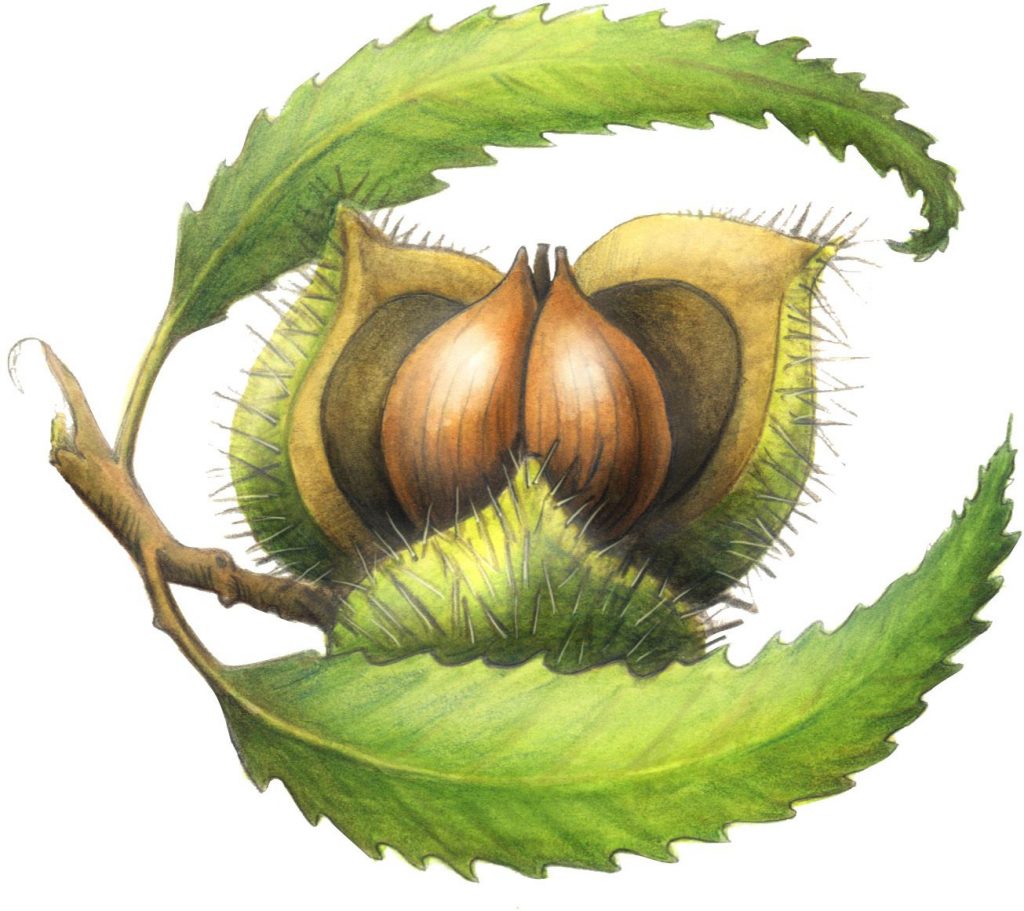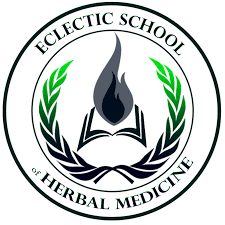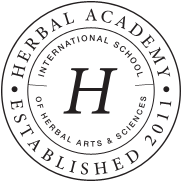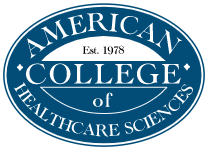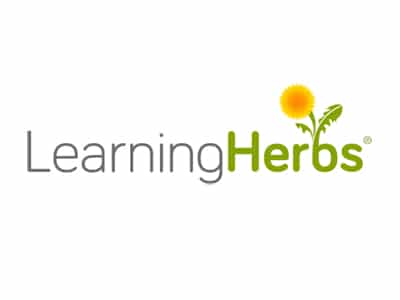- Orientation
- TOP 10 BEST ONLINE HERBALIST COURSES 2023
- 1. Best Course for Home Herbalists: Herbalism: Essential First Aid Remedies
- 2. Most Comprehensive Medicine Technique Course: Online Herbal Medicine Making Course
- 3. Best Professional Certification Course: Clinical Herbal Practitioner Certification Course
- 4. Best Integrated Medicine Degree Course: MS in Herbal Medicine, MUIH
- 5. Best Budget Certification Course: Herbal Academy Introductory Herbal Course
- 6. Best Home Wellness Course: Herbal and Home Remedies: Essential Favorites
- 7. Best Academic Herbal Studies Program: ACHS Herbal Studies, Master Herbalist
- 8. Best Intro to Herbal Foraging: Herbalism: Identify and Harvest Medicinal Plants
- 9. Best Course on Water Extraction Techniques: Easy Techniques for Making Medicinal Teas, Infusions & Decoctions
- 10. Best Self-Directed Learning Resources: Learning Herbs: HerbMentor
- Herbalist Course FAQ
- Extra Credit
- Final Thoughts
We live in a world where things have become more and more plastic. Even many of our modern medicines are derived from petrochemicals and our healthcare model can feel impersonal. The movement to live in harmony with nature has been gaining traction as more people look to their kitchens and gardens as health resources, rather than just relying on allopathic care (formal Western medicine) when something goes wrong.
As we start to question the sustainability and supposed benefits of our modern healthcare systems, many people want to take their health into their own hands. Plant medicine can be used as a preventative measure, or to treat minor day-to-day illnesses. They tend to have fewer side-effects because the compounds are simpler and less concentrated.
While, of course, plant medicine can’t replace modern medicine completely, the two can work together to help us live more healthful lives. Whether you want to learn how to better take care of yourself, your family, or even get certified to be a herbal practitioner in your community, there are online courses to help you on your journey.
Orientation
For many years, herbal medicine was dismissed in most western countries. If you have prescription drugs and over-the-counter medicines, why would you need herbal tea?
Well, the truth is that our ancestors didn’t have access to the medical knowledge that we do, but their lives revolved around nature. They found methods of improving the wellness of their families and communities from the resources around them, and some of these methods can still be beneficial to us today.
Plant-Based Medicine
Plants can contain some potent and effective compounds that can improve your health and wellness. Salicylic acid, for example, is the compound in aspirin that reduces pain and inflammation. This compound is found concentrated in willow tree bark and was used medicinally by Native Americans.
Digitalis, the potent heart medicine, might even be in your back garden in the form of foxglove flowers (though self-medicating with foxglove can be dangerous since you will be taking an unregulated dosage).
Combining Herbalism With Modern Medicine
In other parts of the world, traditional medicines are still used side by side with modern treatments. Many people have hope that soon this will be possible in countries like America, too. If you want to join the movement toward natural medicine that treats the whole patient, not just the disease, you can get started here, with one of these online courses.
Whether you’re just dabbling in the basics of herbs for wellness, or you want to work in the medical field with a degree behind you, there’s a course here that’s right for you.
TOP 10 BEST ONLINE HERBALIST COURSES 2023
1. Best Course for Home Herbalists: Herbalism: Essential First Aid Remedies
- 0.5 hours $49.99
- Course Highlights
- Skill Level: Beginner
- Certification Offered: Yes
- Perfect introduction to herbalism
Why we like it
This vastly practical course is a great place to start if you’re looking for some tried and true remedies.
Course Overview
Every home (and car) should have a first aid kit in it. First aid can help prevent small issues from becoming bigger ones, but most people stock theirs with the usual bandages, OTC pain killers, and antiseptic. In this course, Elizabeth Heck of the Home Herb School teaches you how to assemble an all-natural first aid kit.
This course covers remedies to help you deal with some of the most common home health issues like sore throats, stomachaches, cuts, burns, and toothaches. Many of the treatments for these issues are simple enough for even the most anxious beginner to grasp confidently. Preparing a soothing herbal tea or applying a natural antiseptic like honey are some of the remedies that students are shown.
This course does cover a few somewhat more sophisticated recipes, like making your own Kloss linament, a topical salve for pain and inflammation. At the end of each brief unit, there is also a short quiz to review what you’ve learned. This course also comes with six articles you can print and keep in your home library for reference.
Who It’s For
For someone who is just starting out getting interested in herbalism, this is a great course. It requires no background knowledge in chemistry, medicine, or herbs. Instead, it presents its students with simple everyday applications for plant medicine that you can start using right away.
Most of her recommended remedies can be purchased, and this course is light on recipes. Some may find this more approachable, but you may want to take further classes on how to make medicinal compounds, like our course from Chestnut School of Herbal Medicine, if that is more in line with your goals.
This isn’t a first aid class in the sense that you will be certified to perform things like CPR, but rather it’s a class that helps you start pulling away from synthetic drugs and start looking for more all-natural solutions to your everyday problems.
Pros
- Need no prior herbal knowledge
- Practical plant medicine applications
- Approachable and easy
- Combines purchasable compounds and a few home recipes
Cons
- No first aid or CPR certification
- Very few recipes
2. Most Comprehensive Medicine Technique Course: Online Herbal Medicine Making Course
- 150 hours $599
- Course Highlights
- Skill Level: Intermediate
- Certification Offered: Yes
- Incredibly comprehensive
Why we like it
This medicine-making course is really so much more, showing a broad range of applications for herbs from treating daily ailments to giving yourself aromatherapy spa treatments.
Course Overview
This comprehensive course offered by Chestnut School of Herbal Medicine lets you work at your own pace through 14 videos in 38 lessons, divided into three base modules and a bonus fourth module if you choose. It starts off with the basic techniques you need to make different medicinal compounds from plants, such as tinctures and syrups.
In the second module, the course extends to various culinary uses of herbs, teaching you how to make healthful recipes for daily wellness and illness prevention.
The third module teaches students how to use herbs for bath and body applications. Topical recipes for salves and ointments are featured in this module, but also techniques for aromatherapy and restorative baths are covered.
Uniquely, this course covers topics like foraging to help you identify and use the plants in your local environment. It also provides an Herbal Livelihood Guide to help prepare you for pursuing a career in herbalism or starting a small business selling herbal products, if that’s your goal.
The 368-page course manual is distributed in PDF form for you to reference online or print and keep to refer back to long after the course is over.
Who It’s For
If your interest in herbs is a serious one and you’re looking for a course that will give you a broad spectrum of herb uses and techniques for preparing them, you’ll love Chestnut School’s course. It’s perfect for homesteaders focusing on self-sufficiency or people who just want to be a little less reliant on a doctor or over-the-counter medicine to manage their wellness.
For people who are interested in starting a small online store or getting a booth at the local farmers market, the Herbal Livelihood Guide is an especially helpful feature of this class. You can be better prepared to introduce your collection of herb-infused body sprays and salt scrubs to your community with its guidance. And the course’s collection of 100 recipes can be a good leaping off point for you to develop products for home use and for sale.
It’s best for self-motivated people who like learning via video courses since there won’t be ways to interact with your instructor, though you will receive feedback on your submitted projects. If you’re only looking to learn about one of the course topics, and have no interest, for example, in learning to make herbal body products, this may be a little overkill for the casual learner—someone looking for something a little lighter might prefer the Herbal and Home Remedies: Essential Favorites course.
Pros
- Comprehensive course covering multiple herb applications
- Over 100 recipes to try
- Offers starting point for herbal businesses
- Touches on foraging and wildcraft
Cons
- No instructor interaction during modules
- Not a course for casual learners
3. Best Professional Certification Course: Clinical Herbal Practitioner Certification Course
- 1000 hours $4815
- Course Highlights
- Skill Level: Beginner to advanced
- Certification Offered: Yes
- Offers industry-recognized credentials
Why we like it
If you’re ready to become an herbal medicine practitioner, this course can give you the background and certification needed without a lengthy and expensive degree program.
Course Overview
The Eclectic School of Herbal Medicine offers one of the most comprehensive online courses for people looking to become professional herbalists. Offered in three-tiers, students receive the building blocks of herbal education. Students are under no obligation to do all three levels, depending on their goals, but for professional certification, they must complete all three through the school.
The first course is geared toward beginners to become educated and qualified to be Family Herbalists. This course can be taken on its own at a lower price, but it’s the foundational course for their clinical program. This first module contains 5 courses to get you started understanding plant medicine, nutrition, and how to prepare medicinal compounds. It prepares you to care for the health and wellness of yourself and your family.
Once that course is completed, you can move on to their Community Herbalist module. While you still won’t be able to practice herbal medicine on the professional level after this module, it teaches some important concepts to help deepen your understanding of how the body works and how plant medicine can help keep it in balance. This module focuses on mental health, the nervous system, and the digestive tract.
To work professionally in a holistic medicine clinic or as a private consultant, you’ll need to complete the third level: Clinical Herbal Practitioner. This course delves deeper into diagnosing and treating illnesses through natural means. Pain management, reproductive health for both genders, and other bodily systems (like the immune system, lymphatic system, and respiratory systems) are covered in depth at this level.
Who It’s For
This course is a bigger commitment. If you complete all three levels to get your professional certification, you’re dedicating 1000 hours of your time to receiving this training. But, if you’re serious about learning herbalism on a professional level, this might be the course for you. It’s a different path to a career than a Master’s program, which might not be right for everyone’s circumstances.
The biggest downside to this course is that for clinical certification, it’s not 100% an online course. While the Family and Community Herbalist courses are entirely online, to be certified for Clinical practice, you must put in 300 hours in-person at the school’s headquarters in Lowgap, North Carolina. Their courses can’t be taken all in one lump, either, since these workshops are only offered on the weekend to accommodate people studying while working a full-time job.
If going to North Carolina for a number of weekends spread out over a few months is possible for you, this a very good course, The in-person work is extremely beneficial, but for many, it’s logistically difficult.
Pros
- Three levels of education that build on each other
- Covers bodily systems in-depth
- Tools for testing, diagnosing, and treating illness
- Touches on mental health
Cons
- For clinical certification, in-person hours required
- In-person classes must be spread out over several weekends
4. Best Integrated Medicine Degree Course: MS in Herbal Medicine, MUIH
- 36 credits $892-916/credit before financial aid
- Course Highlights
- Skill Level: Advanced
- Certification Offered: Yes
- Great prep for professional work
Why we like it
If you already have a BA in a medical-related field, but want to work in holistic medicine, MUIH has a highly-rated professional course.
Course Overview
If you already have a medical background, perhaps with a nursing degree or degree in pre-med sciences, you might not want to go the traditional route with your career. The Maryland University of Integrative Health focuses on alternative medicine and how it can be used to support other forms of modern medical treatment.
Their Masters in Herbal medicine focuses on the solid scientific evidence behind traditional medicine treatments and how this can be integrated into western medicine to help patients have better outcomes. As such, the course focuses on topics such as potential interactions between prescription medications and herbal medicines.
The course revolves a lot around safety and legality to help students give their patients the best possible care and look out for themselves legally as well. It prepares students for careers at wellness centers, herbal dispensaries, and as private consultants.
While nearly everything can be completed online, there are on-campus opportunities. The school offers some unique and practical in-person experiences at their campus herb dispensary and herb garden.
Who It’s For
While you don’t need a Masters’s degree to practice herbal medicine, if you want to work in certain fields it may be useful. More and more allopathic hospitals and clinics are starting to integrate elements of homeopathy into their treatment plans and options for patients. Rather than just treating the symptoms of disease, seeking to improve their overall health and wellness has become a priority for many.
If you want to work as a consultant or practitioner at one of these places, it’s good to have a Masters of Science behind you to show that you’re an expert. This course also helps focus on how to use herbal medicine safely alongside allopathic treatments, avoiding dangerous side-effects.
Like most Master’s programs, this is a big-time and financial commitment. Getting approved for financial aid can help, but will vary depending on your circumstances. You also need to already have a completed Bachelor’s degree to enroll in the program.
While nearly everything for this program can be completed online, a 4-day on-campus intensive visit is required to receive your degree. If you live nearby, you can choose to take some courses in person as well.
Pros
- MS degree qualifies you for many careers
- The course focuses on the interaction between homeopathic and allopathic medicine
- Focuses on safety and legality for patients and practitioner
Cons
- More expensive than other clinical programs
- Requires 4-day in-person course
5. Best Budget Certification Course: Herbal Academy Introductory Herbal Course
- 95 hours $297
- Course Highlights
- Skill Level: Beginner
- Certification Offered: yes
- Incredibly cheap for such a long and in-depth course
Course Overview
This self-paced course offers six units to give a foundation of herbal knowledge to anyone interested in practicing herbal medicine at home. The course is available in online video lessons, but you can also choose to upgrade and receive a printable 730-page textbook as well.
The standard package still comes with a printable recipe book and a selection of 75 herbal monographs to give you a deeper look into various herbs and their uses. At the end of each video unit, there’s a quiz that you must pass to move on to the next unit. This ensures that you fully grasp the material before moving on.
The course starts with Herbal Basics, which helps you to understand how to choose herbs for various applications, which preparations are best for which cases, and how to store and organize your herbs. The second unit focuses on Kitchen Herbs, and unit 3 delves into using herbs for day-to-day ailments such as colds and flu, stomach aches, and reproductive health.
After that, the course delves into herbs for nervous system support and herbal body treatments. The final unit of the course looks at the bigger picture of homeopathic medicine in context, looking at how to integrate it into your life and how it interacts with allopathic medicine.
Who It’s For
If you’re looking to get a well-rounded course that’s suited to the beginner-level, this one offers a good balance of casual self-paced learning with practical outcomes. If you aren’t looking for professional-level certification, but want to have a deeper, more accurate understanding of how to safely use herbal medicines in your home than you might get from doing basic research online, this is a great option.
While this certification will not be enough to work at the clinical level, this can also be a great jumping-off point that can help you start on your learning journey if you decided to pursue a career in herbalism. The Herbal Academy offers further courses in more advanced herbalism, as well as a course for would-be entrepreneurs who want to work in herbal fields.
Interaction with your instructors is limited to the course’s Facebook group, where you can interact with other students as well.
Pros
- Self-directed learning at your own pace
- Covers many aspects of herbalism
- Comprehensive, yet affordable
- Starting point for more advanced studies
Cons
- Course textbook costs an additional fee
- Interaction is limited to a Facebook group
6. Best Home Wellness Course: Herbal and Home Remedies: Essential Favorites
- 30 minutes free with Skillshare subscription
- Course Highlights
- Skill Level: Beginner
- Certification Offered: No
- Quick introduction to the basics of herbalism
Why we like it
This class offers practical and approachable ways to start incorporating herbs into your daily life.
Course Overview
This light and breezy course is taught by Elizabeth Heck, founder of the Home Herb School. In this short class, she walks you through several home remedies that you can make quickly and easily in your home kitchen.
The course focuses on practical and simple applications for common culinary ingredients like garlic, ginger, and mint. Heck shows you how to prepare these plant ingredients to take advantage of their healthful and healing properties for everyday ailments. The course also covers what herbs to take with you for first aid during a trip.
Her course focuses on a few common issues: cold and flu remedies, first aid, energy-enhancing herbs, and kitchen medicine. Several recipes are demonstrated in the course, such as how to make fire cider. This health tonic is often used during cold and flu season to boost the immune system and your body’s circulation. Students also see how to make a relaxing lavender spray, homemade chai tea, and other medicinal teas and compounds.
Who It’s For
Not everyone is looking to become an expert. If you just want a simple and straightforward course that will show you a few practical recipes that you can make in your own kitchen every day, you’ll appreciate this class. By focusing on some of the most common daily ailments, you’ll be sure to find useful tips and recipes you’ll return to again and again in this course.
At only a half-hour long, the class is pretty low-commitment and the deeper principles of herbal medicine and wellness aren’t really covered deeply. But it may give you some inspiration for your own personal research. That said, you may want to combine it with a more in-depth course after.
The handful of recipes demonstrated in this class are by no means a comprehensive collection of remedies. They also go by quickly, so you may need to watch them back a few times if you’re new to working with herbs and kitchen medicine. However, this is a great way to get more comfortable in the kitchen taking your health into your own hands and seeing if herbalism is something you want to pursue further.
Pros
- Quick and approachable class
- Practical, everyday recipes
- Easy way to start learning and getting comfortable
Cons
- Light on health concepts and info
- Short recipe demonstrations
7. Best Academic Herbal Studies Program: ACHS Herbal Studies, Master Herbalist
- 39 credits $19,613 before financial aid
- Course Highlights
- Skill Level: Advanced
- Certification Offered: Yes
- Perfect for medical professionals looking into herbalism
Why we like it
For professionals with a medical background, this course in herbal studies can enrich your ability to treat your patients.
Course Overview
Geared toward people who already have completed studies in medicine or a scientific field, this Master’s program by the American College of Healthcare Sciences gives students the know-how and the degree to work in integrated medicine. The course is 100% online, and the college will send you any textbooks and supplements you need.
The class helps students gain a deeper knowledge of the human body with three levels of Anatomy and Physiology at the heart of the course. Studying a selection of herbs over the Herbal Materia Medica classes with help you understand their qualities and the various ways to use them therapeutically. The herb courses even briefly cover identification, wildcrafting, and harvesting techniques for particular herbs.
Since this is a course geared toward working in integrated medicine in a clinic that also practices allopathic medicine, there is a good deal of focus on research and diagnostics, as well as legal protocols. For the would-be-entrepreneur, one of the course classes focuses on the ins and outs of setting up your own business as an herbal consultant.
Who It’s For
If you already have a background in medicine, perhaps as a nurse, dietician, or physical therapist, this Master’s program is an excellent companion to your knowledge. If you want to be able to help your patients in more ways or start working at holistic medicine clinics, this will position you for success.
The course on starting your own consultant business will also be especially useful if you would like to be a freelancer or contractor working with different clinics or taking private clients. For many of the more practical hands-on applications of herbalism, you may need to look into taking an elective, such as the college’s aromatherapy course. The actual MA program is a little more bare-bones, focusing on the academic side of herbalism.
Other useful electives focusing on topics like complementary and alternative medicine (CAM), mental health, and nutrition are also available. Of course, these do increase your cost of study. While this course is great if you want to work in a more traditional medical setting, if you’re looking to be prepared for a broader range of herbal careers, we recommend the course from the Maryland University of Integrated Health.
Pros
- Prepares students for clinical herbalist careers
- Conveniently 100% online with texts and materials sent to you
- Gives you the foundation for starting a consultant business
Cons
- Fewer hands-on courses
- Many valuable courses taught as electives which increase cost
8. Best Intro to Herbal Foraging: Herbalism: Identify and Harvest Medicinal Plants
- 2.5 hours $139.99
- Course Highlights
- Skill Level: Intermediate
- Certification Offered: Yes
- Perfect introduction to field herbalism
Why we like it
If you want to safely use the resources around you to produce sustainable medicine, this course helps give you a foundation of skills.
Course Overview
While most people start off by getting our herbs at a local health food store or delivered in neat packages from online resources, our ancestors would look at the forests and fields around them as their shop. This course aims to help you start looking at your environment in the same way.
This course is broken into sections by plant type: plants, flowers, roots, and trees and bushes. In each section, students are taught about some of the most common wild-growing medicinal plants in each category. Things commonly dismissed as weeds, such as nettles and horsetail, for example, are highly nutritious. Dandelion root has a number of applications, and willow bark can be used as a painkiller.
Learning the ways to use these plants is just the beginning, though. This course discusses key characteristics to help you identify these plants in the wild so you don’t harvest something potentially dangerous by mistake. Also covered in this course are methods of sustainably harvesting these medicinal plants and some plant identification resources you can use while foraging.
Who It’s For
While many of us live in cities or suburbs where we can feel cut-off from nature, if you live close to a forest or enjoy getting away for camping and hiking trips, you might find this course valuable. It can be especially helpful if you do enjoy long excursions in nature. In case you are lost or injured while far away from town, this class can teach you to identify plants that can help you be safer and more comfortable until you can get help.
Overall, this course is somewhat brief and focuses mainly on a handful of common North American plants in each category. However, it doesn’t take the time to delve into topics of wildcrafting sustainably, or how to prepare multiple preparations of the different herbs. It also assumes that students must have some previous herbal knowledge, so if you’re lacking in that you should take a general herbalism course first.
Pros
- Teaches the benefits of certain medicinal plants
- Helps show how to identify and harvest herbs
- Evaluates plant identifying apps
Cons
- Limited to a handful of specific plants
- Need some knowledge of herb preparation to start
9. Best Course on Water Extraction Techniques: Easy Techniques for Making Medicinal Teas, Infusions & Decoctions
- 30 minutes Free with Skillshare premium subscription
- Course Highlights
- Skill Level: Beginner
- Certification Offered: No
- A start-to-finish guide to water extractions
Why we like it
This quick and easy course teaches you a few important techniques for harnessing the goodness of herbs at home.
Course Overview
This course focuses on one of the most basic methods for extracting medicinal compounds from plants: water extraction. Herbal teas will be most familiar to students, but methods for creating infusions and decoctions are also covered in this course so that you can use the correct method depending on the herbs you’re using and how concentrated your brew needs to be.
This simple and low-pressure course helps newbie herb-enthusiasts understand some of the terminology associated with herbalism and how to make some of the most basic and versatile compounds.
There are two small hands-on projects in this course too. The instructor, Selima Lust, walks you through brewing a cup of herbal tea. It may seem simple enough, but she asks you to practice mindfulness techniques in the preparation and drinking of the tea. The second project is to make your own echinacea decoction for immune support.
Who It’s For
If you feel a little overwhelmed by all the courses that dig into chemical compounds and the dozens of ways to prepare different herbs, this class will be an easy breath of fresh air. All you need is to have some basic kitchen equipment and herbs on hand, along with some water. By the end of the class, you can feel confident in your ability to make the three water-based extractions the instructor covers.
The instructor’s tone is relaxing and while the course shows some practical techniques for making herbal compounds, it definitely has a new-age vibe. The application of plant medicine is related to mindfulness and spirituality. If that’s your cup of (herbal) tea and something you’re interested in exploring, you’ll appreciate Lust’s approach since she is also a spirituality coach. If you want something a little more science-based, you might prefer a beginner herbal first aid course, like this one.
Pros
- Teaches three methods of water extraction
- Two hands-on projects
- A mindful, relaxing approach
Cons
- Requires you to have certain herbs on hand
- Focuses on spirituality more than science
10. Best Self-Directed Learning Resources: Learning Herbs: HerbMentor
- Open-ended $11.99/month
- Course Highlights
- Skill Level: Beginner to advanced
- Certification Offered: No
- Everything you need to understand all aspects of herbalism
Why we like it
For something that’s less like a traditional course, and more a self-guided research journey, HerbMentor offers an interesting option.
Course Overview
HerbMentor offers an interesting alternative to the traditional course format often seen online. Rather than moving through units of video lessons with evaluations, HerbMentor is more structured like a mutual learning community. The site describes itself as “Netflix of herbs” since it offers subscription-based content.
Your subscription gives you access to a selection of more traditionally structured courses, along with video seminars on particular topics, articles, and podcasts all about herbalism. The subscription also comes with access to a community forum where you can engage in discussions about all things herbal with other learners.
The community feature helps connect you to those with the same interests and goals as you, but the open-ended nature of the community creates a relaxed and approachable learning environment that lets you choose topics that particularly interest you.
Who It’s For
While this course does not offer certification or career options, it could be a good resource for those who are interested in pursuing more formal herbalism studies down the road. While you are waiting for your situation to be more conducive to a course with an hour requirement and higher fees, you can still bone up on your knowledge and learn concepts that will be applicable in your daily life.
This has the potential to be valuable to those who already have certification in the field as well. It can be a research tool and a way to keep up to date with new information in the herbalist community. Though, much of the information isn’t quite as in-depth as would be useful to a professional.
Pros
- Relaxed, self-directed research and learning
- Online community forums
- Wide range of available resources
Cons
- Limited contact with course instructors
- More topical information for non-professionals
- No credits or certifications
Herbalist Course FAQ
You may be excited to start learning more about herbs, but you also probably have a few lingering questions, especially if you’re just starting out.
Herbs have been used for thousands of years, so many people feel more comfortable using them for daily ailments or helping to prevent and control diseases that they may be predisposed to. While allopathic, or modern medical care is often recommended to treat more acute conditions, herbs are great for maintenance care.
Many people like incorporating herbs to boost their immune system to prevent seasonal illness, help with mild nausea and indigestion before it becomes something like acid reflux, or increase their antioxidants to reduce their risk of certain cancers or heart disease that may run in their family. Many herbal supplements carry fewer risks for severe side-effects (though if you have certain conditions or take certain medications, you should exercise caution).
Homeopathic medicinal techniques that work with your body rather than against it are coming back into fashion and being more deeply researched. Many of the ideas may seem ancient, but upon deeper investigation, some of them have true medical merit. The idea of treating a person by correcting their lifestyle for better health and wellness overall, rather than attacking a particular disease when it crops up, can improve quality of life and reduce the risk of acute illness.
If you’re interested in learning more about how you can use herbalism, a non-academic herbalist course like our top overall pick is your best place to start.
There are many options for properly qualified herbalists. If you like the clinical side of diagnosing and treating patients, you might want to become a clinical herbalist. These practitioners can open their own practice and consult private clients. Some may also work at holistic medicine clinics, or even at a more traditional health clinic that offers integrated health plans.
Some people become interested in herbalism because they have a passion for nature. You can make a career that allows you to spend more time outdoors as well. Some herbalists will work at or even start their own nursery or garden center for medicinal plants. You can help others start their own herb gardens, or even sell them your freshly dried herbs to use in their own recipes. If you become certified in foraging, you can even lead outdoor classes in safe and sustainable wildcrafting.
Many herbalists teach courses to help encourage others to use plant-based medicine in their lives, so if you love the idea of paying it forward and being an educator, that could be a career path.
Even if teaching in-person isn’t for you, some herbalists write books on various subjects or maintain blogs and websites for people to find information. There are even formal research positions at universities and pharmaceutical companies for people qualified in the field of herbalism. Some companies that make plant-based products may also hire herbalists for product research and development.
And of course, if you love hands-on, crafty work, you can always apply your knowledge to creating herbal products for sale. Many people who make bath products like skin salves, soaps, and bath salts have some background in herbalism. You might even sell internal products like herbal tea blends or tinctures. You can sell online through your own website or Etsy. There may also be opportunities to sell within your community at markets.
Anyone looking to start a career in herbalism should consider an academic herbalist program that includes both practical herbalism skills and the business and legal knowledge required to have a career in the field.
You may wonder what other disciplines can complement your herbal studies. Depending on how you want to use your herbal knowledge, you may look at different areas that can give you personal or professional skills that work with herbalism.
In the realm of holistic medicine and wellness care, there are many options. Many natural medicine clinics will offer acupuncture treatments to their clients, so if you’re looking to work at this type of clinic, that might be an area to become certified in.
Massage therapy is also a big area of wellness care that often incorporates essential oils into its treatment. Training in massage can be a great companion to herbalism.
For people looking to become a private health coach or consultant, receiving certification as a nutritionist or dietician can be extremely valuable. By helping correct dietary issues overall, you can better help your clients understand their health as a whole and how herbal supplementation fits into a healthy diet.
Extra Credit
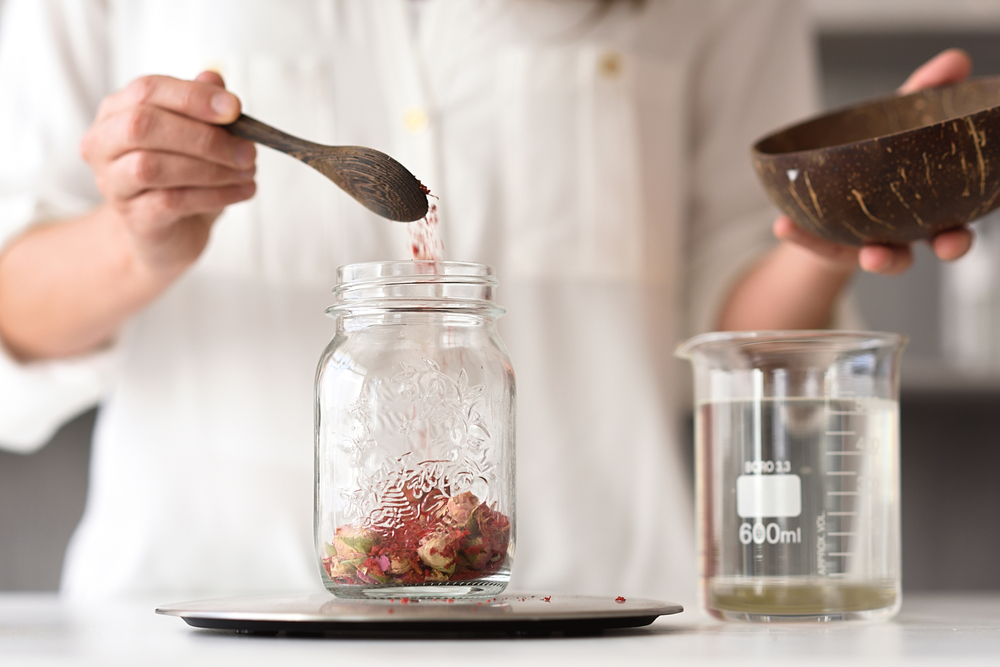
When choosing which herbalism course you want to understand what your goal in studying is first. Several of the options on our list are a good fit for people looking to simply expand their knowledge to practice plant medicine for themselves and their families.
In this case, topic-driven, kitchen medicine-focused courses are probably best for you, such as our picks from Herbal Academy and HerbMentor.
Herbalism As a Career
However, herbalism studies can also be the route to a career. There are several ways to become a certified herbalist and not all courses that offer a certificate of completion will qualify you for medical practice. Some of these certificates are merely additions to your portfolio so that if you pursue further study or an apprenticeship, you can show your previous knowledge.
For a course that sets you on a career path, you might like to choose a Master’s course, such as the one offered by the Maryland University of Integrated Health, or American College of Healthcare Sciences. In some cases, a 1000 hour practical course like the one offered by The Eclectic School of Herbal Medicine might be enough for your target career.
The American Herbalist Guild offers some advice on how to get certified to work in the field of herbal medicine and how to become registered with the guild.
Final Thoughts
The reasons people have for studying herbalism vary. Some see it as a step forward in medical science, looking at whole-body health through integrated medicine. Others see it as a way to look back to how our ancestors lived more harmoniously with nature.
Either way, it’s clear that in many western countries, the field of herbalism is heating up. Whether you want to be right on the cutting edge, or you want to practice slow and mindful wellness, there are herbalism courses that can enrich your knowledge and your life.
Every course on our list has valuable information that you’ll want to bring home to your family and community or take with you to a professional environment, depending on your goals. No matter how you use this knowledge, learning is always worthwhile, especially when it helps you have a better understanding of the world around us and our very own bodies.



